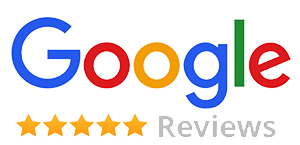David Grover is a guest writer to my Blog page. He has written a comprehensive article on how to incorporate non-professional experience in your resume, cover letter and other supporting documentation (when requested). Enjoy the reading
Show off your real-world experience — it might just help you land your dream job!
Contrary to how it sounds, there is immense value in sharing non-professional experience when you apply for jobs. Nowadays, many people chose to gain meaningful experiences from historically untraditional routes of learning. Traveling, competing on sports teams, or following a passion project can offer experience that you won’t necessarily find in academic or vocational pursuits. Folding these experiences into your resume can be challenging, but if you go about it with some savvy, your resume is bound to stand out to potential employers.
First, take a few moments to brainstorm and write down your non-professional experiences. Perhaps you participated in the Peace Corps program or you built your own computer for fun. Any experience that has sharpened your skillset is worth noting. Below each item, identify what skills you gained from each one. For example, your Peace Corps placement may have taught you leadership or a new language. Building your own computer may have taught you programming and mechanical design.
Now that you’ve identified the finer points of your non-professional experience, set that list aside for reference. You’re ready to build your resume. Keep in mind that it is good practice to tailor each resume to the different applications you’re going to submit. If you have a breadth of professional experience already, keep it relevant. Don’t feel like you need to include every job you’ve ever held.
Once you’ve created your basic resume of professional experience, choose the first job you’re going to apply to. Find out what the qualifications and primary job functions are. What is the company’s mission? What does it value? Take a look at your list of non-professional experience and skills, and see which items are in harmony with the job. Integrating your relevant non-professional skills into your resume can take four forms:
The Cover Letter
An optimal space to add some personality to your application, the cover letter is also suited for non-professional experience. If you’ve lived abroad, traveled extensively, or done something that has taken up a significant amount of time, talk about it! Let your prospective employer know how the experience has shaped you as a person, or how it has shown you the career path you want to pursue (and has serendipitously led you to them!).
The Resume
Non-professional experience that has particularly tangible associated skills or award recognition can blend easily into the resume itself. For example, if you are a photographer or computer programmer by hobby, you are likely to have gained some very technical skills along the way. Let your potential employers know what computer programs or programming languages you are well versed in. Perhaps you’ve even won some awards worth noting!
Many job seekers also include a small list of general interests on their resume to spice it up. There is value in putting this information directly on your resume, as it can help to demonstrate whether you’d be a good fit within the company culture. So feel free to add extras like jogging, reading, French cuisine, or hiking with your dog.
Supplementary Materials
Not every employer will require or appreciate extra pieces in your application, so use your discretion with this one. If you are applying for a creative job, such as in photography or web design, consider submitting a portfolio of your work. It doesn’t matter if the work you’ve done has been as a hobby or a paid service. It will demonstrate your skills and showcase your creativity.
The Interview
This is a bit of a gamble since interviews aren’t guaranteed after you apply for a job, but it may be a good idea to save some details for the interview questions. Employers will often start an interview with a basic, “So tell me about yourself.” They’ve already read your resume, so they’re looking for something they don’t know already. Like in the cover letter, now’s a good time to add some personality. Tell the interviewer about what drives you, what your creative outlets are, and anything else you want to add.
Including your non-professional experience in your job applications can be rewarding if done correctly. The key is to find the right time and place to communicate it, while making sure you stay relevant. Not only will it show a more accurate picture of what you’re capable of, it will also set you apart from the rest of the applicant pool.
David Grover is a Communications Manager at Timeo, a useful tool for businesses in the UK. He is also a freelance career coach who is always eager to share his experience and knowledge.
Cheers,
Annie Cerone








